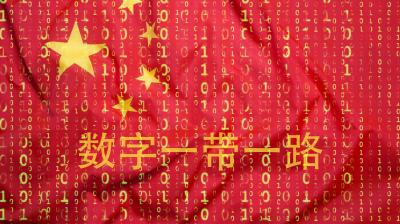How a EU-Taiwan partnership could ensure digital benefits for all
This article has previously been published by the University of Notthingham.
The Covid-19 pandemic calls attention to the need for cooperation among like-minded partners that wish to uphold an open and inclusive cyber domain. The protection of digital freedom of speech, transparency and inclusiveness is at stake as governments resort to (sometimes intrusive) digital means to monitor and combat the coronavirus. At the same time, economic competitiveness in the digital age requires innovative approaches, as the US-China rivalry profoundly reshapes the global tech landscape and global governance. This is where Taiwan and the European Union (EU) have similar interests and stand to benefit from exchanging best practices.
These two partners share a fundamental interest in maintaining and furthering digital inclusiveness – an environment wherein everyone can contribute to and benefit from the digital economy and society – and a human-centred approach to digital governance at home and abroad. Shaping dynamics in this field requires that they cooperate, coordinate and strengthen synergies between their domestic and foreign policies in the digital domain, both defensive and offensive.
The EU Digital Strategy Versus Taiwan’s DIGI+
At home, Taiwanese and EU strategies and practices in the digital field are getting the attention they deserve, as per the DIGI+ and the Digital Strategy, respectively. Both strategies also include a foreign policy dimension that may, however, be further developed with more dialogue and outreach to like-minded countries and emerging economies.
In Europe, European Commission President Ursula von der Leyen made ‘A Europe fit for the digital age’ one of the key priorities of her presidency. The EU Digital Strategy was launched in February 2020, followed by the EU’s digital industrial strategy in March. So far, however, the EU’s approach stands out for its inward-looking focus: a comprehensive Digital Single Market strategy focusing on access, environment, economy and society, but little on the foreign policy dimension – so-called digital connectivity. Even in the 2018 EU-Asia Connectivity Strategy, the digital domain receives little mention. Aiming to help deliver inclusive and sustainable growth in developing countries and emerging economies, while also serving Europe’s economic and strategic interests, more needs to be invested in the promotion of digital infrastructure, inclusiveness and development in third countries (so-called ‘digital ODA’).
In Asia, Taiwan has excelled in the high-tech, digital field, evolving into an important hub for European high-tech companies over the past decades. Its government aspires to preserve that role with the new generation of knowledge-based industries, products and services. To accelerate industrial innovation, the Taiwanese government in 2016 launched the Digital Nation and Innovative Economic Development Plan (2017-2025) known as DIGI+: Development, Innovation, Government, Inclusion. In the same year, Audrey Tang, a prominent figure of the sunflower movement, was appointed Taiwan’s first Digital Minister (without portfolio). Aware of the immense challenges facing Taiwan – the need to defend its democracy and national interests against an increasingly (cyber) assertive China, while engaging citizens in the policymaking process – the government invited Tang further to develop the g0v (‘gov-zero’) movement. This is an open-source, open government civic-tech collaboration that creates digital tools to involve the public more in the formation of government policies and develop new ways to combat disinformation. Abroad, Taiwan promotes information transparency and open data, among other things, to assist countries to combat the Covid-19 virus, publicized under the label #Taiwancanhelp and Taiwan’s Southbound Policy. Even though Taiwan has a measured digital foreign policy, its scope – and hence reach – remains limited as the country’s international status remains precarious due to political challenges from Beijing. The effectiveness and legitimacy of its action will improve through cooperation with international partners such as the EU.
Digital Competence, Competitiveness, and Cyber Resilience
To capitalize on the opportunities and guard against the challenges presented by technological developments, there is a need for EU-Taiwan coordination on digital competence, competitiveness, and resilience.
Going beyond digital literacy, digital competence entails the knowledge and skills that people need to function safely, ethically, and productively in the digital environment. To improve citizen’s digital competence and develop an inclusive e-economy underpinned by the values of a free and open internet, the EU created the European digital Competence Framework (DigComp). With these, albeit still scattered efforts, the EU aims to support digital infrastructure initiatives and offers technical assistance in developing countries. Even though Taiwan faces its own challenges such as brain drain to mainland China, Taiwan does share the objectives of DigComp. As a world leader in ICT hardware manufacturing, and one of the most cyber-attacked economies in the world, Taiwan adopted a national focus on the development of a cybersecurity ecosystem. Sharing best practices on the improvement of digital competence, for example through dialogues, but also by exchange programmes for young technological talents, may uplift the digital competences within the EU and Taiwan.
Subsequently, Europe and Taiwan would do well to coordinate efforts to provide technical assistance and digital training programmes to governments, companies and civil society within the EU and Taiwan, but also in developing countries and emerging economies, so as to help them to strengthen digital competence and competitiveness. US-China tech rivalry risks forcing third countries into a binary choice for surveillance capitalism (of American Big Tech) and state surveillance (of Chinese Big Tech). Europe and Taiwan should show there is an alternative, by jointly appealing for initiatives that promote an inclusive, human-centred, and open information and communication technology (ICT) environment in their own regions and beyond.
In addition to promoting digital competence and digital competitiveness, the EU and Taiwan should join forces to enhance their cyber resilience critical infrastructure and ICT systems, in particular to cyberattacks. Whether or not China’s Huawei 5G equipment may pose a risk to the EU’s digital resilience has been a matter of recent heated debate in Europe. Europe’s conundrum is reminiscent of the polarized debate in Taiwan in 2014 when the grassroots sunflower movement succeeded in preventing the ratification of the Cross-Strait Service Trade Agreement (CSSTA). This agreement included the liberalization of trade in services, wherein national security risks as a consequence of the liberalization of (4G) telecommunication services were a key concern. The EU and Taiwan should share best practices and coordinate their cyber resilience activities, so that their governments, companies, and civil society can more effectively counter censorship, disinformation, and cyber-surveillance practices.
Moving forward: the push for inclusiveness, openness and transparency
Clearly, shared challenges and values in the digital field provide ample incentive for the EU and Taiwan to coordinate action and cooperation. In both geographies, strategic thinking and policies on national security, economic competitiveness, surveillance software, censorship and digital human rights are shaped by US-China tech rivalry. Acting on the understanding that every internet-user is a stakeholder in the development of a human-centred framework in the digital domain, international coordination that includes governments, companies and civil society is of paramount importance. Now is the time for the EU and Taiwan, together with like-minded partners, to further develop and globally appeal for this multi-stakeholder approach, which is informed by digital inclusiveness, openness and transparency.
Follow @BrigitteDekker_, @MaaikeOh and @Clingendaelorg on Twitter.








